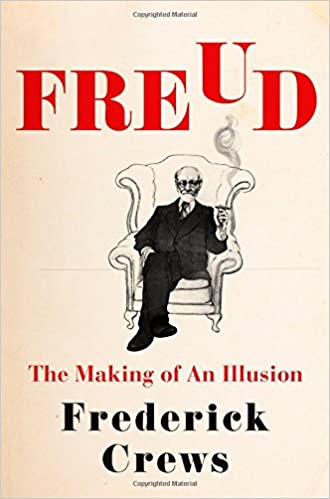Gentle reader: During the past 24 hours while you slept you dreamt. You may not recall your dream but you did dream, or so say contemporary neurologists and scientists.
For millennia there have been many treatises, tracts or plain ‘hocus pocus’ views about dreams. On 24 November 1899, Sigmund Freud’s Interpretation of Dreams (first edition, in German Die Traumdeutung) went for sale or hit the book stores, perhaps initially in Vienna, Austria.
This article, in part, commemorates the 121st anniversary of Freud’s ‘dream book’.
151st anniversary of first publication of Charles Darwin’s Origin of Species and 121st anniversary of Sigmund Freud’s Interpretation of Dreams
On 24 November 1859, Charles Darwin (12 February 1899–19 April 1882) published the scientific landmark Origin of Species (short title) (in English). Exactly 40 years later on 24 November 1899, Sigmund Freud (6 May 1856-23 September 1939) published his Interpretation of Dreams (first edition in German).
One of Freud’s biographers, the late Peter Gay, observed (in my opinion somewhat anomalously) that there were much less interest and excitement, on their first publications, of Freud’s book compared to that of Darwin’s 40 years earlier. As the late Professor Andrew S. Watson, Professor of Law and Psychiatry at the University of Michigan Law School, observed in 1995 with a smile when I mentioned Peter Gay’s comment to him: "It is very difficult to compete with that (Darwin’s) book." I might just add, "rightly so too" (see below).
2020 Nobel Prize in Medicine and looking back about 100 years ago regarding a non-recipient
The 2020 Nobel prize in medicine or physiology was announced in October 2020. Many interested people the world over would or should rejoice that Harvey J. Alter, Michael Houghton and Charles M. Rice were announced by the Nobel Committee that they were Nobel laureates in Medicine or Physiology for 2020 ‘for the discovery of Hepatitis C virus and for their efforts in tackling a major health problem’. This writer had never heard of these distinguished scientists – now they would be of much more renown the world over.
It may be appropriate to mention briefly that Sigmund Freud, arguably more renowned in the ‘content-neutral’ sense of the word, than at least a few of the Nobel laureates in Medicine, never received any Nobel prize. (This is not a statement of regret nor is it implied that the contributions of Nobel laureates in medicine are not significant as those of Freud’s theories, some of which have been debunked by many other scientists even in Freud’s own field.)
Two biographies of Freud and no person being ‘wholly praised or wholly blamed’

In 2018, I read the book Freud/Fraud: The Making of an Illusion, published in 2017 and written by Professor Frederick Crews. As can be easily discerned from the title it is a critical, indeed scathing, critique of Freud and almost every thing ‘Freudian’.
In contrast, another biography of Freud published about 30 years earlier (as can be easily seen, again, from the title) Freud: A Life for Our Time by Peter Gay (first published 1988) can be described, generically, as hagiographical.
How (or what) is it that two eminent professors mainly in the discipline of humanities (Crews is Professor Emeritus at Berkeley and the late Peter Gay taught at Yale University) have very different views of the same personage? But then stanza or Verse 228 of the Dhammapada states: "There never was, there never will be nor does there exist now a man [now ‘person’] who is wholly praised or wholly blamed."
Freud having had to live in exile in the last year of his life
Due to Nazi occupation and persecution, Freud had to leave his native Austria for Britain in June 1938 and he died there just over a year later in September 1939.
Both Freud and his ‘elder’ contemporary Karl Marx were of Jewish heritage (Freud of Austrian and Marx of German descent) and both died in exile in Britain. Like Freud Marx died in exile near London but unlike Freud Marx died a few decades after he left Germany.
I was saddened to learn from Gay’s biography (not from Frederick Crews’) that two of Freud’s sisters also tried to escape Nazi-occupied Austria but did not get visas in time to migrate (perhaps, like Freud) to Britain or elsewhere. Both sisters died in Nazi concentration camps during the Second World War. Freud could not have learned about them for he had died exactly three weeks after the Second World War officially started on 2 September 1939.

Freud not becoming a Nobel laureate either in Medicine or in Literature
Now, to the Nobel prize(s) which Freud did not receive. Perhaps like quite a few others who did and also who did not become Nobel laureates, Sigmund Freud probably coveted (so to speak) a Nobel laureate in Medicine or Physiology.
Gay wrote that Freud was nominated quite a few times and the archives of the Nobel Assembly – which is withheld for 50 years – revealed in the 1920s nominations that Freud be awarded the Nobel prize in Medicine and Physiology. The nominators resided as far away from Freud’s native Austria as Peru in South America.
Gay wrote that in 1929 the Nobel Committee decided not to seriously consider Freud any more for the Nobel Prize in Medicine or Physiology. This decision was made after a referee (whose name we do not know, but may be a previous Nobel laureate in medicine) opined, in effect, that Freud's theories were (and are), in the context of the medical field, not scientific. Gay stated in his biography that in Freud's diary of October 1929 there was a short note to himself that he was 'passed over for the Nobel prize'.
It is perhaps more well-known that although Mahatma Gandhi was nominated for the Nobel Peace Prize at least five times in different years he was never a Nobel peace laureate. An admirer of the Mahatma once told me that the Mahatma did not 'need the Nobel Peace Prize'.
Considering Freud's fame or notoriety (based on one’s perspective) over that of some, perhaps quite a few, other Nobel medicine laureates, did Freud 'need' the Nobel Prize in Medicine even if he might have arguably coveted it?
Another ‘iffy’ history or query: should Freud have been awarded the Nobel Prize for Literature instead? (He didn’t get it either.)
Not third after Copernicus and Darwin but a third after Montaigne and Nietzsche?
The late Harold Bloom (like Gay, also of Yale University) wrote that Freud, who wanted to be a 'third after Copernicus and Darwin', can be considered as a third after 'Montaigne and Nietzsche' as a modern literary figure of great importance.
Freud wrote in one of his essays that Nicolas Copernicus by proving the heliocentric theory and Darwin by stating that homo sapiens are a product of evolution and not ‘special creation’ had ‘dethroned humans from the pedestal’. Freud stated that he took the next step, after Copernicus and Darwin, by arguing, perhaps ‘proving’ in his view, that humans are not rational animals but they are in bondage, amidst the clutches of unconscious motives, desires and indeed perhaps, at times, even ‘evilisms’ that lurked in what he termed the Id in the human psyche.
The comparison of Freud (by himself) with these two great scientists was what prompted Bloom to state ironically, perhaps sarcastically, that Freud was not a third after Copernicus and Darwin but he was more like a third after Montaigne and Nietzsche. Bloom meant that Freud was more of a modern ‘essayist’ like Montaigne and Nietzsche rather than a pucca (‘pure’) (medical) scientist.
Bloom had a chapter in his book The Western Canon (first published 1994) entitled 'Freud: A Shakespearean Reading'. Bloom stated that William Shakespeare, not Freud, was the world's first psychologist and that Freud's writings could be analysed from a Shakespearean view point. At the same time (unlike Frederick Crews who has virtually nothing complimentary to say about Freud) Bloom also wrote that Freud was "possibly the best mind of our [20th] century" [sic, quoted exactly as it was written].
'Freud’s theories' v non-falsifiability thesis of Karl Popper
The philosopher of science, Sir Karl Popper, was also critical of Freudianism, asserting that Freud and Marx’s theories can be 'supported' by their admirers by 'extracting from any social phenomena to claim that their theories are right'. He mentioned Einstein's Theory of Special Relativity of 1905, which was proven right (because it was capable of being proven wrong unlike Marx's and Freud's theories) in 1919 by an expedition led by the astronomer Sir Arthur Eddington, by scientifically recording the celestial phenomena during and after an eclipse that occurred in May 1919 and can be observed in a few parts of the world.
Two Freud admirers and their research work
There are at least two Freud admirers whom I personally know. The late Professor Andrew S. Watson of the University of Michigan Law School in the United States (in whose class 'Law and Psychiatry' yours truly stood co-equal first) was a Freudian, as can be seen from his book Psychiatry for Lawyers (first published 1969).
Professor Melford Spiro was an anthropologist and Burma scholar. In his book Buddhism and Society: A Great Tradition and its Burmese Vicissitudes (second edition, 1982) at page xii, Spiro wrote about "the genius of Sigmund Freud whose theories help me perceive at times resolved Burmese social phenomena studied from an anthropological viewpoint".
Lieb und arbeitrk (to love and to work)
I first learned of the statement (rightly) attributed to Freud from Watson’s Psychiatry for Lawyers. In the German language, in part, it reads lieb und arbeitrk, ‘[to] love and [to] work’, should be one of the characteristics and indeed tasks of a ‘mature person’, Freud had stated.
Is there any justification to juxtapose, contrast or even to analogise between what Freud meant by ‘love’ and the Buddhist concept (in Pali language) of metta ‘loving-kindness’?
The dedicated, valiant efforts that are being made by admirable people the world over to overcome the once-in-a century scourge by the name of COVID-19 that afflicts the planet, it is submitted, displays service to humanity inspired by ‘love’ in the sense of what Freud meant and also that of metta ‘loving-kindness’.

Dr Myint Zan is a retired professor of law who taught at universities in Malaysia, Australia and the South Pacific.
Do you have an idea for a story?Email [email protected]
 Campus Review The latest in higher education news
Campus Review The latest in higher education news

